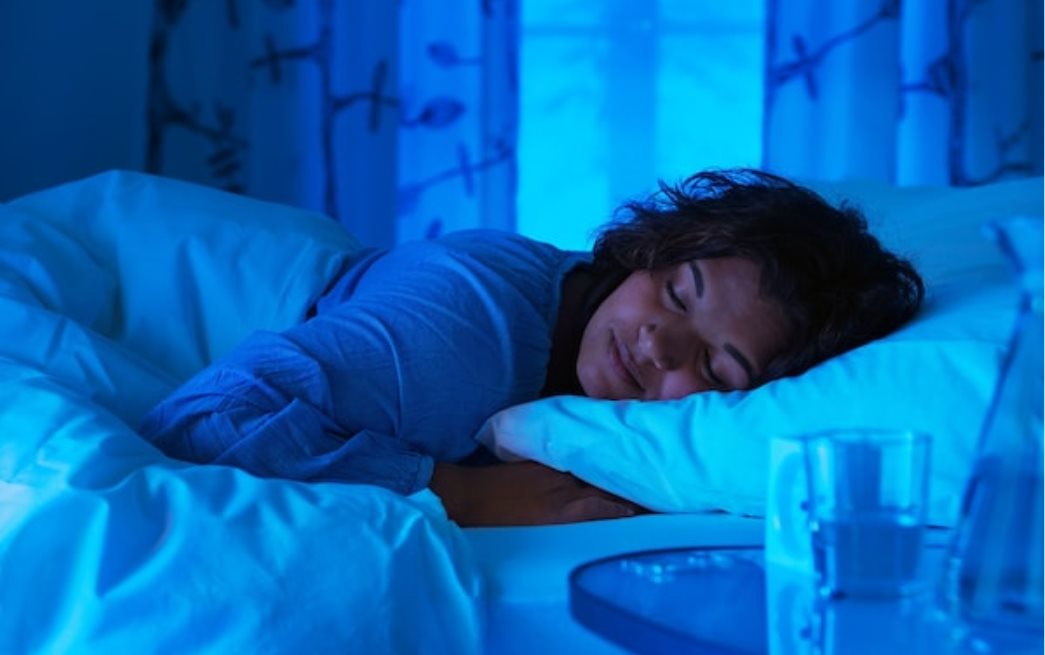In today’s modern world, our lives are increasingly intertwined with technology. We spend a significant amount of time using electronic devices such as smartphones, tablets, and computers. While these devices have brought numerous benefits, they also expose us to a type of light that can disrupt our sleep: blue light. Blue light is emitted by electronic screens and certain types of light bulbs, and it can interfere with our natural sleep-wake cycle. However, by understanding the impact of blue light on sleep and employing strategies to block it at night, we can promote better sleep and overall well-being. This comprehensive guide aims to explore the effects of blue light on sleep, discuss the importance of a healthy sleep routine, and provide practical tips on how to block blue light at night.
Understanding Blue Light and Its Effects on Sleep
Blue light is a type of light on the visible spectrum with a short wavelength and high energy. It is present in natural sunlight and helps regulate our circadian rhythm, the internal clock that regulates our sleep-wake cycle. Exposure to blue light during the day helps us stay alert, enhances cognitive function, and boosts mood.
However, when we are exposed to blue light during the evening and night, it can have adverse effects on our sleep. Blue light suppresses the production of melatonin, a hormone that promotes sleepiness. Melatonin is naturally released by the pineal gland in the brain as darkness falls, signaling to our body that it’s time to sleep. When we expose ourselves to blue light in the evening, particularly from electronic devices, it confuses our circadian rhythm and delays the release of melatonin, making it harder to fall asleep and get restorative rest.
The Importance of a Healthy Sleep Routine
- Before we delve into strategies for blocking blue light, it’s essential to emphasize the importance of a healthy sleep routine. Establishing a consistent sleep schedule and practicing good sleep hygiene are crucial for overall sleep quality. Here are some key tips:
- Stick to a schedule: Try to go to bed and wake up at the same time every day, even on weekends. This helps regulate your body’s internal clock.
- Create a relaxing bedtime routine: Engage in calming activities before bed, such as reading a book, taking a warm bath, or practicing relaxation techniques like deep breathing or meditation.
- Make your sleep environment conducive to rest: Ensure your bedroom is cool, dark, and quiet. Use comfortable bedding, block out external noise with earplugs or white noise machines, and consider using blackout curtains or an eye mask to eliminate light disturbances.
- Limit caffeine and alcohol intake: Avoid consuming stimulants like caffeine or alcohol close to bedtime, as they can interfere with your sleep quality.
locking Blue Light at Night
Now that we understand the negative effects of blue light on sleep and the importance of a healthy sleep routine, let’s explore effective strategies for blocking blue light at night:
- Adjust screen settings: Most electronic devices, including smartphones, tablets, and computers, offer a “Night Shift” or “Night Mode” feature that reduces the amount of blue light emitted. Enable these settings, or use third-party applications that provide similar functionality.
- Wear blue light-blocking glasses: Blue light-blocking glasses have specially designed lenses that filter out blue light. Wearing these glasses in the evening can help mitigate the impact of blue light on your sleep.
- Use software applications: Several software applications are available that reduce blue light emissions from electronic devices. These applications apply a blue light filter to your screen, creating a warmer color temperature that minimizes the disruptive effects on melatonin production.
- Install blue light filters on light bulbs: Consider replacing standard light bulbs with blue light-blocking ones in your bedroom and other areas where you spend time in the evening. These bulbs emit less blue light and create a more sleep-friendly environment.
- Minimize device usage before bed: Establish a digital curfew by avoiding the use of electronic devices for at least one to two hours before bedtime. Engage in relaxing activities instead, such as reading a book or listening to calming music.
- Dim the lights: Lower the overall brightness of your environment in the evening by using dimmer switches, lamp shades, or lower-wattage bulbs. This helps reduce the intensity of blue light exposure.
- Invest in a blue light filter for your screens: Consider purchasing a physical blue light filter or screen protector for your electronic devices. These filters adhere to the screen and reduce blue light emissions while still maintaining display clarity.
- Opt for e-readers with e-ink displays: If you enjoy reading before bed, choose an e-reader with an e-ink display rather than a backlit tablet. E-ink displays mimic the appearance of ink on paper and emit significantly less blue light.
Conclusion
Blocking blue light at night is crucial for promoting healthy sleep and maintaining a well-regulated sleep-wake cycle. The negative effects of blue light on melatonin production and circadian rhythm can lead to difficulties falling asleep and disrupted sleep patterns. By implementing the strategies outlined in this comprehensive guide, such as adjusting screen settings, wearing blue light-blocking glasses, and practicing good sleep hygiene, you can minimize the impact of blue light and improve the quality of your sleep. Remember, prioritizing sleep is essential for overall well-being and should be an integral part of your daily routine.
- Real User’s Take: Full Spectrum CBD Oil Review – Benefits, Taste, and Honest Thoughts - August 29, 2024
- Unlocking Serenity: A Fun-Filled Review of Glowbar London’s CBD Isolates! - May 18, 2024
- Brian Berry Citrus Blend Marijuana Strain - September 23, 2023





